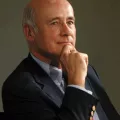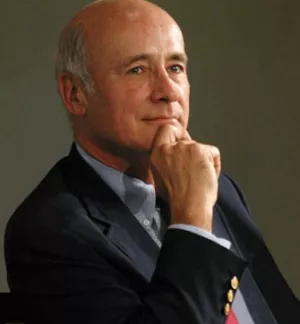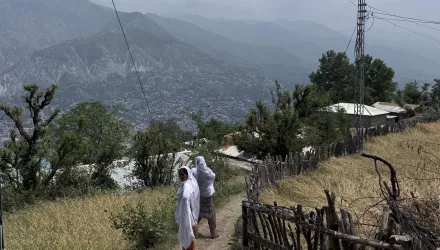The debate over whether the US should go to war with Iraq is often cast as one between hawks who urge the prompt use of force and doves who oppose it. But a third position - let us call it that of owls - makes more sense.
Owls would use force to back up the United National Security Council resolutions violated by Saddam Hussein but take the time necessary to develop a broad, multilateral coalition. Now that the US Congress has authorised the use of force, the crucial choice is between hawks and owls.
Impatient hawks who ask why the US should let other countries decide what is in the national interest miss the point. A patient, multilateral approach to Iraq is in the country's best interest. Unilateralism and multilateralism are not religions, but tactics, and can sometimes reinforce each other, as President John F. Kennedy showed during the Cuban missile crisis. Indeed, owls could accept a move to unilateral pre-emption if Mr Hussein were planning a terrorist attack, or just about to obtain nuclear weapons. But in the current situation, multilateralism is essential. The long-term danger we face is the trap set by Osama bin Laden. Portraying the US as the enemy of Islam was his recipe for recruitment of a next generation of terrorists. So far, we have prevented the war on terrorism from becoming a clash of civilisations. The real clash is a civil war within Islam between extremists and moderates. President George W. Bush ably avoided Mr bin Laden's trap after September 11 2001 by bringing Muslim clerics to the White House and educating the American public about Islam. The US also deployed force carefully in Afghanistan, minimising the American presence on the ground and avoiding disproportionate civilian casualties.
But Iraq is different from Afghanistan. It would be tragic if impatience now created a self-inflicted clash of civilisations. Hawks paint a rosy picture of how US liberators of Iraq could stay on in the country as welcome tutors in democracy and create an instant modern state. But this ignores Iraq's deep internal divisions and the absence of institutions that protect human rights and the rule of law. We should also be wary of projecting our rosy images upon the Middle East region. A recent Gallup poll of people there shows a very different picture.
Even in Kuwait, there is great distrust of US motives. Moderate Arab governments such as Kuwait, Qatar and Bahrain have no love of Mr Hussein and are likely to allow us access to their bases; but a unilateral approach will be costly in public opinion. As the head of the Bahrain Human Rights Society said recently: "It will create more than one bin Laden. From the ruins of the war, feeling against the US will increase."
Owls point out that if we enter Iraq, and are serious about democracy, we will not be able to exit quickly. If we are there largely alone, we are more likely to appear to some portion of the population in Iraq and the Islamic world to be a colonial or imperial power. The position will be doubly difficult if Prime Minister Ariel Sharon follows through on his threats of military involvement if Mr Hussein strikes out at Israel. And if the US is perceived as an imperialist power in the region, we shall encounter an anti-imperial reaction that could breed a new generation of terrorists.
We can reduce this risk somewhat if a war is short and involves few civilian casualties; but we cannot be confident that will be the case and even a short war still leaves the problem of occupation. So owls argue that the best way to reduce the risks is to gain the legitimacy of multilateral approval and assistance, both when going in and after getting there. That is why multilateral action does not simply amount to letting others determine the interests of the US. It is instead the best way to pursue the country's interests.
Hawks say that the country cannot afford to wait for slow, cumbersome, multilateral diplomacy that could take many months. But the benefits of delay are higher than the costs. As Mr Bush has himself said, Mr Hussein is at least a year away from achieving nuclear capability. And the Iraqi leader already has the capability to produce biological weapons, which he could have smuggled into US cities if he wanted to. The threat that he poses to the US will not be changed by delaying. The administration could use the additional time to improve the still woefully inadequate state of homeland preparedness, advance the fight against al-Qaeda's clear and present danger and build a multinational coalition for the time when it may have to move against Mr Hussein.
Recent polls show that two-thirds of the American public are willing to use force if Mr Hussein presents an immediate threat but support for action without the support of America's allies falls to well below half the public. American people seem to understand that the issue is more complicated than doves versus hawks and that the crucial choice the US faces is between impatient, unilateral hawks and patient, multilateral owls.
Nye, Joseph. “Owls are Wiser About Iraq Than Hawks.” Financial Times, October 21, 2002



